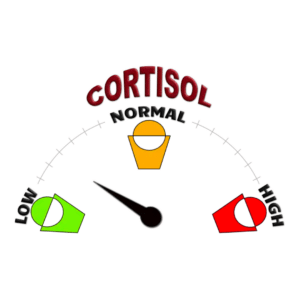It is highly likely that you will have experienced some type of inflammation at some point in your life, whether it has been in your joints, around the point of an injury, or after exercise. Inflammation is a healthy immune response to invaders such as certain bacteria and viruses, and anything trying to damage the cells in the body. It is characterised by heat, pain, redness and swelling. Although this response is healthy, it has to be carefully monitored because, if the immune system overreacts and inflammation becomes chronic (long-lasting), disease will result.
Inflammation is a healthy immune response to invaders such as certain bacteria and viruses, and anything trying to damage the cells in the body.
There is solid scientific evidence that links chronic inflammation with diseases such as atherosclerosis (thickening of the arteries), cancer, obesity, non-alcoholic fatty liver disease, dementia and diabetes, which are among the leading causes of death worldwide. 1-3 This has caused scientists to focus on common underlying metabolic dysfunctions that increase people’s risks for them. These common underlying metabolic dysfunctions are collectively known as Metabolic Syndrome (METs).“Metabolic” refers to the biochemical processes involved in the normal functioning of the body.
Metabolic Syndrome (METs) involves a combination of three or more of the following risk factors, according to the NHS:
- a waist circumference of 94cm (37 inches) or more in European men, and 80cm (31.5 inches) or more in European women;
- high triglyceride levels (fat in the blood) and low HDL levels (“good” cholesterol), which can lead to atherosclerosis (where arteries become clogged up by fatty substances);
- high blood pressure consistently 140/90mHg or higher;
- an inability to control blood sugar levels (insulin resistance).
One of the first symptoms doctors look out for in diagnosing METs is expanding belly fat. This creates chemicals, which cause inflammation and elevated blood sugar levels. Persistently high blood sugar levels and high insulin levels result in excess sugar being converted into long chain fatty acids, which can be deposited in the belly, making inflammation even worse. Controlling inflammation, not cholesterol levels, is critical to reducing heart disease and other chronic illnesses.
Controlling inflammation, not cholesterol levels, is critical to reducing heart disease and other chronic illnesses.
Today, research is focussing on how the Standard American diet (SAD), which is becoming increasingly prevalent worldwide, and over-consumption of added sugar – in particular, fructose – impacts METs and chronic disease. 4 The SAD describes the stereotypical diet of Americans: 63% of their calories come from refined and processed foods (eg. soft drinks, packaged snacks like potato crisps, packaged desserts, etc); 25% comes from animal-based foods, and 12% from plant-based foods. Unfortunately half of the plant-based calories (6%) come from French fries. That means only 6% of America’s calories are coming from fruits, vegetables, whole-grains, nuts and seeds.

Studies have suggested that this high added sugar intake, independent of total energy intake, physical activity or BMI-score, is the true culprit of METs. 5 According to Robert Lustig, an American paediatric endocrinologist who specialises in neuroendocrinology and childhood obesity, the liver can only safely metabolise about six teaspoons of added sugar a day. Any excess gets metabolised into body fat. This in turn can lead to obesity, type 2 diabetes, heart disease, and a number of other chronic illnesses. 6
The good news is that if you have or are at risk of METs, you can get your body metabolically back on track.
The good news is that if you have, or are at risk of METs, you can get your body metabolically back on track. A weight loss of only 3 to 5% of your current body weight can reduce your triglycerides, blood glucose and risk of developing type 2 diabetes. 7 Greater amounts of weight loss can improve blood pressure, lower LDL and increase HDL. 7 (nhlbi.nih.gov). Other lifestyle factors that have a positive impact on METs are increasing physical activity and quitting smoking. 7
Foods that make METs worse are processed foods, 8 artificial sweeteners, 9 trans fats, 10 refined carbohydrates, 11 and alcohol. 12 Healing foods are leafy greens, avocados, and a rainbow of different coloured vegetables. 13 Additionally, omega-3 rich foods such as wild Alaskan salmon, sardines, walnuts, flaxseed and natto (fermented soybeans), which are anti-inflammatory. 14 Alongside these, fruits – in particular, pomegranates 15 – legumes such as kidney beans, chickpeas, black-eyed peas and lima beans, which are excellent for keeping blood sugar levels stable, 16 and whole-grains, which are high in fibre and have proven benefits for diabetes and heart health, 17 are all considered healing.
The major goal of addressing METs is to reduce the risk of heart disease and type 2 diabetes, and the other inflammatory-driven chronic illnesses mentioned above. The main focus of tackling it is managing risk factors that are within your control such as being overweight, having an unhealthy diet, and an inactive lifestyle. If you need help or advice, a registered nutritional therapist or other chosen healthcare practitioner will happily assist you in getting your body metabolically headed in the right direction.
Get in touch with me to today to discuss how I can help you with this: andy@thesugardoctor.co.uk.
REFERENCES:
- Hansson G, Robertson A, Sederburg-Nauder C (2006) Inflammation and atherosclerosis. Annual Revolutionary Pathology 1: 297-329;
- Monteiro R, Azevedo I (2010) Chronic Inflammation in obesity and metabolic syndrome. Mediators Information 2010;
- Grivennikors S, Greton F, Karin M (2011) Immunity, inflammation and cancer. Cell 140(6): 140(6); 883-899;
- Grotto D, Ziede E (2012) The Standard American Diet and its relationship to the health of Americans. Nutrition in Clinical practice 25(6): 603-612;
- Stanhope (2016) Sugar consumption, metabolic disease and obesity. The state of the controversy. Critical Review Clinical Laboratory Science;
- Lustig R, Schmidt l, Brindis C (2012) Public Health: The Toxic Truth about sugar. Nature 487 (5) 27-29;
- nih.gov metabolic syndrome;
- Tavares L, Fonseca S, Garcia M, Yokoo E (2012) Relationship between ultra-processed foods and metabolic syndrome in adolescents from a Brazilian Family Doctor Program Public Health Nutrition 15(1): 82-87;
- Nettleton J, Lutsey P, Wang Y, Lima J, Michos E, Jacobs D (2009) Diet soda intake and risk of incident metabolic syndrome and type 2 diabetes in the Multi-Ethnic Study Atherosclerosios (MESA). Diabetes Care 32(4); 688-694;
- Micha R, Mozaffarian D,(2009) Transfatty acids: effects on metabolic syndrome, heart disease and diabetes Nat Rev Endocrinol 5 (6): 335-344;
- Mirmiran P, Yuzbashian E (2015) Consumption of sugar sweetened beverage is associated with incidence of metabolic syndrome in Tehranian children and adolescents Nutri Meta (Lond) 12:25;
- Sun K, Ken M, Liu D, Wang C, Yang C (2014) Alcohol consumption and risk of metabolic syndrome: a meta-analysis of prospective studies. Clin Nutr 33(4) 596-602;
- Fulgon V, Dreher M, Davenport A (2013) Avocado consumption is associated with better diet quality and nutrient intake and lower metabolic syndrome risk in US adults: results from the National Health and Nutrition Examination Survey (NANES). Nutrition Journal 2001-2008;
- Lorente-Cebrian S, Costa A (2013) Role of omega 3 fatty acids in obesity metabolic syndrome and cardiovascular disease: a review of the evidence J Physiol and Biochem 69 : 633-651;
- Medjakovic S, Jungbauer A (2013) Pomegranate: a fruit that ameliorates metabolic syndrome. Food Function 4(1): 19-39;
- Sajjadi F, Gharipour M, Mohammadifard M, Nouri F, Maghroun M, Alikhasi H (2014) Relationship between legumes consumption and metabolic syndrome: findings of the Tsfahan Healthy Heart Program ARYA Atherosclerosis 10(1): 18-24;
- nlm.nih.gov (Metabolic Syndrome NHLBI Health Topics (Internet)








